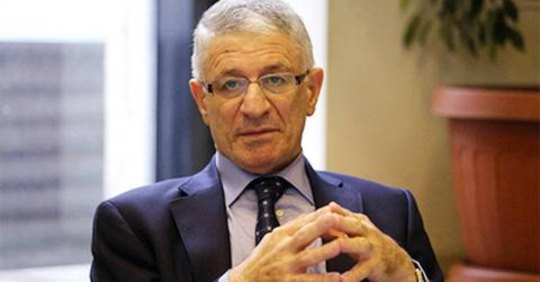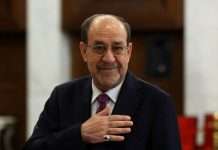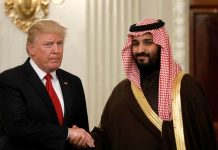Macron’s Initiative Between What Is Allowed and Refused by Nasrallah
Sam Menassa /Asharq Al Awsat/August 17/2020
مبادرة ماكرون بين المباح والمحظور عند نصر الله
سام منسى/الشرق الأوسط/17 آب/2020
يُكثر اللبنانيون من توجيه الشكر بعد كلّ محنة تمرُّ بها بلادهم، والمحن كثيرة، تتوالى من دون رحمة منذ أكثر من نصف قرن.
لعلّ أبرز رسائل الشكر «شكراً سوريا» في 8 مارس (آذار) 2005، التي أطلقها بكيدية مستنكرة حسن نصر الله بعد اغتيال الرئيس رفيق الحريري ورفاقه، وتلتها «شكراً قطر» عقب الحرب بين إسرائيل وحزب الله عام 2006، و«شكراً إيران» بعد الحرب نفسها حين عُلّقت اليافطات باللغة الفارسية على طريق مطار بيروت وفي الضاحية الجنوبية.
ويضاف إلى هذا الشكر المعلن ذاك المضمر، الذي وجهه بعض اللبنانيين مثل «شكراً إسرائيل» على إخراج منظمة التحرير الفلسطينية من لبنان بعد اجتياح عام 1982.
واليوم، استدعى الموقف الفرنسي بعد كارثة تفجير مرفأ بيروت توجيه اللبنانيين الشكر إلى فرنسا، وبخاصة إلى رئيسها إيمانويل ماكرون، الذي جاء بيروت في زيارة عاجلة حاملاً معه مبادرة تهدف إلى تسوية الأزمة بما يسمح للبلاد بالتقاط أنفاسها ووصول مساعدات سريعة ملحة إلى المنكوبين جراء هول المأساة، إضافة إلى الضغط على المسؤولين لتسريع القيام بإصلاحات جذرية في بنية النظام السياسي المأزوم إلى حد الاستعصاء، عبر تشكيل حكومة يكون قد ضُخت فيها دماء جديدة تساعد لبنان في النهوض من النكبة.
ما يقال عن عزم ماكرون وضع كل ثقله لإنجاح مبادرته يبدو زهري اللون ومفرطاً بالتفاؤل.
وحتى لا يضيّع اللبنانيون البوصلة لتكبر بعد ذلك مرارة الخيبة على ما تعودوه، من الواجب التوقف عند بعض العقبات الرئيسية التي تواجه المبادرة الفرنسية القائمة على تشكيل حكومة وحدة وطنية مع اعتباره حزب الله مكوناً لبنانياً لا بد من إشراكه، والشروع بإصلاحات بنيوية في النظام السياسي والإدارة ومكافحة الفساد.
ومن العقبات هذه، التساؤلات الكثيرة حول حقيقة وجود تفاهم إيراني – فرنسي على تسوية ما تدفع حزب الله إلى تقديم تنازلات لتسهيل تشكيل حكومة جديدة يسمح لها القيام بالإصلاحات المطلوبة.
ففي حال وجود هذا التفاهم فأي تنازل تستطيع إيران تقديمه في هذه المرحلة؟
هل هو انكفاء حزب الله عن التدخلات العسكرية والسياسية في سوريا واليمن والعراق، والتوّقف عن مهاجمة الدول الخليجية العربية؟
هل هو الموافقة على ترسيم الحدود البحرية بين لبنان وإسرائيل؟
وماذا ستحصل إيران وحزب الله مقابل هذه التنازلات؟
القول «لا شيء» هو جواب غير منطقي إلا إذا كان حزب الله متورطاً في تفجير مرفأ بيروت، بمعنى أن ما انفجر إلى جانب نيترات الأمونيوم هو أسلحة وذخائر عائدة له تسببت في هذا الدمار الهائل، والمخابرات العالمية على علم بذلك، وهي تمسكه من اليد التي توجعه، علماً بأن أمين عام الحزب اعتبر هذه الفرضية لا يقبلها «عقل سليم».
وإذا سلمنا معه بصحة ذلك، فالعقل السليم يقول إن ثمن أي تنازل إيراني هو أمران: الرفض الفرنسي لمشروع القرار الأميركي حول تمديد حظر الأسلحة إلى إيران في مجلس الأمن، وإبقاء سلاح حزب الله خارج البحث، بمعنى الإبقاء على علة انهيار لبنان وكل تسوية هشة أخرى.
ومن أبرز العقبات التي تشير إلى وهن المبادرة الفرنسية مراهنتها على قبول الحزب المسلح بإصلاحات تزيل سبب وجوده وغطرسته، لأنها ستؤدي حتماً إلى إعاقة حرية حركته عبر تشديد المراقبة على المنافذ كافة، ومكافحة شبكات الفساد الداخلية التي يرعاها أو يشيح النظر عنها وتسمح له بهامش كبير من الفوائد والمصالح.
من جهة أخرى، كيف تنظر واشنطن إلى هكذا تفاهم إذا كان قد حصل وهي التي تمارس في هذه المرحلة بالذات، أي خلال الأشهر القليلة المتبقية من ولاية الرئيس دونالد ترمب، أقصى الضغوطات على إيران ووكلائها في المنطقة، لا سيما حزب الله اللبناني؟
ولا بد من الإشارة هنا إلى المعلومات الواردة مؤخراً، أبرزها ما ذكرته صحيفة «وول ستريت جورنال» الأسبوع الماضي، نقلاً عن مصادر رسمية، تتحدث عن فرض عقوبات على شخصيات وهيئات من حزب الله وأخرى متحالفة معه، إضافة إلى شخصيات لبنانية أخرى متهمة بالفساد.
ووفق المعلومات أيضاً، تسعى أميركا عبر هذه العقوبات الإضافية الجديدة إلى تحقيق هدفين: أولاً استبعاد جماعة الحزب ومن يلوذ بها عن الحكومة العتيدة من جهة، ودق الإسفين فيما بينها من جهة أخرى، في محاولة للضغط لتشكيل حكومة حيادية تكون بعيدة عن سطوة الحزب.
هذه المعلومات تشي أن ثمة تبايناً بين باريس وواشنطن التي أرسلت وكيل وزارة الخارجية ديفيد هايل إلى لبنان يوم الجمعة الفائت، في مسعى استدراكي قد يكون لكبح الاندفاعة الفرنسية، وشرح الموقف الأميركي المنسجم تماماً مع مواقف بعض الدول العربية الخليجية بشأن حزب الله، ورفض دوره المهيمن في الحياة السياسية اللبنانية.
فكيف يمكن التوفيق بين المبادرة الفرنسية التي تسعى إلى تسويات مع حزب الله قد تزيد من سطوته على القرار السياسي، فيما تستبعد موضوع سلاحه لتربطه بتسوية أميركية – إيرانية – عربية، وبين مواصلة أميركا أكثر من أي وقت مضى سياسة فرض أشدّ العقوبات على إيران وحلفائها؟
اللهم إلا إذا كان وراء الأكمة ما وراءها، وثمة تطورات لا نعرفها فيما يحكى عن مفاوضات أميركية – إيرانية تجري على قدم وساق بوساطة عُمانية.
وسط هذه المشهدية، جاءت زيارة وزير الخارجية الإيراني محمد جواد ظريف إلى بيروت قبل يوم من موعدها المقرر في «مونة» متخطية البروتوكول وتشي باستثنائية إيران عند المسؤولين اللبنانيين.
فهل حمل معه لاءات تحذيرية تؤكد ما قاله في زيارته السابقة عام 2019 إن «لبنان ساحتنا» وإنه ليس متروكاً للأوروبيين والأميركيين، وتكون بذلك قد ذهبت المبادرة الفرنسية أدراج الرياح؟
الجواب على ذلك جاء فورياً على لسان السيد نصر الله في كلمة متلفزة لم يغير فيها مواقف الحزب التقليدية قيد أنملة لجهة رفض حكومة حيادية لا يشارك فيها أو انتخابات مبكرة، كأن انفجار بيروت لم يحصل، بل حدد ما هو مباح وما هو محظور مهدداً الداخل والخارج معاً: داخلياً حين طلب من مواليه الصبر مع المحافظة على غضبهم لعلهم يحتاجون صبه في القريب على شركائهم في الوطن، وخارجياً حين دعا إلى عدم الخوف من البوارج الأجنبية على سواحل بيروت قائلاً: «نعرف كيفية التعامل معهم»، في إشارة ضمنية إلى من يتذكر التفجيرين اللذين استهدفا القوات الفرنسية وقوات المارينز في بيروت عام 1983.
في المحصلة، تأكد مرة جديدة أن الخطّ الفاصل بين لبنان الدولة والكيان والشعب، وحزب الله، بدأ ينهار، بحيث تحوّل لبنان إلى مساحة جغرافية أو قاعدة عسكرية تستعملها إيران من دون مراعاة لمصالح الشعب اللبناني ومستقبله ولا حتى لأبناء الطائفة الشيعية، وإيران شريكة بكل ما شهده لبنان من مآسٍ وصولاً إلى اغتيال بيروت.
لبنان لن يتعافى، وهو يواجه موته البطيء في ظلّ مبادرات متعجلة على غرار ما تسرب عن مضمون المبادرة الفرنسية، بينما القوى التي تسمي نفسها معارضة لحزب تحمّله فشل الدولة وتسعير التوتر الطائفي تخجل من الاجتماع، ولو صورياً، حتى بعد انفجار كاد يطيح بلبنان برمته.
Macron’s Initiative Between What Is Allowed and Refused by Nasrallah
Sam Menassa./Asharq Al Awsat/August 17/2020
The Lebanese profusely give thanks with every major ordeal that hits the country, and they are many, striking mercilessly, one after the other. Perhaps the most prominent of these tokens of appreciation came on March 8 2005 when, with vexatious disapproval, Hassan Nassrallah said “thank you Syria” following the assassination of the prime minister Rafic Hariri and his companions. It was followed by “thank you Qatar”, on the heels of the war between Israel and Hezbollah in 2006, and “thank you Iran” after the same war, when Farsi banners were hung on the Beirut airport and in the Hezbollah stronghold of the southern suburbs. In addition to this explicit gratitude, the implicit thanks have been expressed by some Lebanese, such as “thank you Israel” for expelling the Palestine Liberation Organization from Lebanon after the 1982 invasion.
Today, France’s stance after the disaster in Beirut’s port called for Lebanese thanks to France, especially its president, Emmanuel Macron, who came to Beirut on an urgent visit carrying with him an initiative aimed at settling the crisis, allowing the country to breathe and have the urgent and badly needed aid delivered to those affected by the horrors of the tragedy, in addition to pressuring officials to speed up implementation of fundamental reforms to the political system, which is in trouble and close to a breaking point, by forming a government that pumps new blood into Lebanon and helps Lebanon recover from the calamity.
What has been said about Macron’s determination to put all his weight behind ensuring his initiative’s success seems rosy and excessively optimistic. In order for the Lebanese to avoid losing their way, making their eventual bitter disappointment even bitterer than those they are accustomed to, it is imperative on us to pause and look through the main obstacles facing the French initiative: forming a national unity government, with Hezbollah considered a component of Lebanese life that must be included, and embarking on structural reforms to the political system and public administration and fighting corruption.
Among these obstacles are the many questions around the accuracy of reports of an Iranian-French settlement which pushes Hezbollah to make concessions that would facilitate the formation of a new government and subsequently allow it to carry out required reform. If there is such an understanding, what concessions can Iran make at this stage? Is it Hezbollah’s military and political withdrawal from Syria, Yemen, and Iraq, and pledges that the group will cease to attack Arab Gulf states? Is a concession regarding the demarcations of the maritime borders between Lebanon and Israel? What will Iran and Hezbollah get in return for these concessions? Replying, “nothing”, would be an illogical response, unless Hezbollah was involved in the explosion at the Beirut port, in the sense that what blew up next to the ammonium nitrate were its weapons and ammunition and that this was what caused this massive destruction, and the international intelligence agencies know and but are keeping it to themselves, for now, keeping in mind that party’s secretary-general considered that a “sound mind” would never believe such a claim. If we assume this to be true, then common sense leads us to drive that the Iranians will make such concessions in return for two things: French rejection of the American draft resolution on extending the arms embargo on Iran in the Security Council and leaving Hezbollah’s weapons off the table. This would entail maintaining the problem that led to Lebanon’s collapse and all the other fragile compromises. Among the most prominent obstacles indicating the scrawniness of the French initiative is its bet that the armed party will allow for the implementation of reforms that would do away with the reasons for its existence and sources of its haughtiness. For such reforms would inevitably impede its freedom of movement by tightening control over all crossings; the reforms would push back against the internal corruption networks that Hezbollah sponsors or turns a blind eye to, in return for an array of benefits.
Moreover, how would Washington see such an understanding if it exists, especially at this particular stage, during the remaining few months of President Donald Trump’s term, during which it is exerting maximum pressure on Iran and its proxies in the region, especially the Lebanese Hezbollah? Here, we must refer to new information that is coming out, especially those mentioned in an article that was published by The Wall Street Journal last week. Citing official sources, it discusses new sanctions being imposed on Hezbollah figures and institutions, as well as others that are allied with it and other Lebanese figures accused of corruption. It is claimed that America also seeks, through these new additional sanctions, to achieve two goals: first, exclude the group and those hiding behind it form the next government on the one hand, and drive a wedge between them on the other, in an attempt to pressure them to form a neutral government that is not influenced by Hezbollah.
These reports indicate a discrepancy between Paris and Washington, which sent its Under Secretary of State David Hale to Lebanon last Friday, perhaps in an effort to curb the French’s momentum, and to explain that the American position is totally consistent with the positions of some Arab Gulf states regarding Hezbollah; it rejects Hezbollah’s dominant role in Lebanese political life. How is it possible to reconcile the French initiative that seeks settlements with Hezbollah and may strengthen its grip on political decisions and does not bring up the issue of its weapons, with an American-Iranian-Arab settlement and link the two together, all while America continues to impose ever stricter and unprecedented sanctions on Iran and its allies? Unless there is something behind the hill behind it, and there are developments to which we are oblivious amid talk of American-Iranian negotiations mediated by Oman moving full swing.
In the midst of all of this, Iranian Foreign Minister Muhammad Jawad Zarif visits Beirut a day before the scheduled date, bypassing the protocol and indicating Iran’s exceptional “closeness” to Lebanese officials. Did he carry warnings, affirming the claim he made on his previous visit in 2019 that “Lebanon is our arena” and that it is not to be left open for the Europeans and Americans, thus thwarting the French initiative? The answer came immediately, in Nasrallah’s televised speech. Hezbollah’s traditional positions were unchanged with regard to rejecting a neutral government in which it is not represented, or early elections. It is as if the Beirut explosion had never been. Rather, he set parameters around what was permitted and what was forbidden, threatening both internal and external parties: internally when he asked his loyalists to be patient and preserve their anger, as they would perhaps need to use it soon against their opponents. Externally, he called on them not to fear foreign warships on the coasts of Beirut, saying: “We know how to deal with them”, in an implicit reference to those who remember the two bombings that targeted French forces and Marines in Beirut in 1983.
In conclusion, it was once again affirmed that the line between Lebanon, the state, the entity, and the people, and Hezbollah is beginning to crumble, whereby Lebanon turned into a geographical arena or a military base that Iran exploits, without taking the interests and future of the Lebanese people into account, not even the members of the Shiite community. Iran had a hand in everything that afflicted Lebanon, including the assassination of Beirut. Lebanon will not recover, as it faces its slow death, amid hasty initiatives, as the leaked information for the French initiative indicates. The political forces that call themselves the opposition to a party they hold responsible for the failure of the state and inflaming sectarian tensions are too ashamed to meet, even if only for the sake of it, even after an explosion that almost did away with the whole of Lebanon.



















